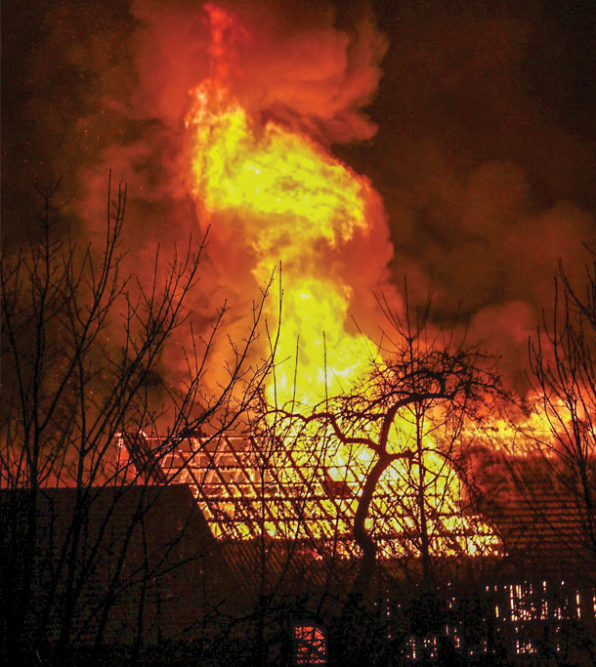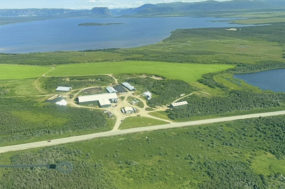Fires on farms and in farm buildings are on the rise. Unfortunately, when a fire breaks out on a farm, it is often too late to put it out, increasing the damages and loss. The challenge of supplying water and the speed at which flames spread reduce the chances of being able to save the buildings and animals. Prevention continues to be the best defence against the risk of farm fires.
These tragic events represent significant material and financial losses for owners, their families and their communities. Insurance claims for a dairy farm average between $2 million and $3 million. Most importantly, no insurance policy covers the emotional distress of seeing the hard work of generations go up in smoke.
Why are farm fires increasing?
The livestock environment is particularly harsh on equipment, buildings and their electrical networks. High humidity, dust, corrosive gases and the presence of flammable elements like wood shavings, hay and straw create a high-risk environment. Efficient ventilation also increases the oxygen supply to a fire, rendering it almost unstoppable.
Automation of operations has increased electrification on the farm. Within these modern farming conditions, electrical networks and components are prone to deteriorate more quickly, increasing the importance of prevention and adequate maintenance. Nearly half of all barn fires are caused by an electrical problem.
Managing priorities
Maintenance on tractors and other large equipment is often a priority, but that’s not always the case for smaller equipment like fans and electrical motors used in daily operations. It is easy to fall into “reactive mode” where farmers and their employees fix what breaks, rather than prioritizing day-to-day maintenance. Equipment maintenance is the core of efficient fire prevention strategies.
Maintaining a healthy electrical network is also important, but more difficult to do. A faulty bearing can be heard and an oil leak is visible, but identifying electrical malfunctions or concerns is more abstract. You can’t see them and you can’t hear them. Electricity and automation have become essential to farm operations, but special attention must be assigned to their maintenance.
In addition to being a leading cause of farm fires, an unhealthy power grid can decrease productivity and lead to unwanted downtime. A farm’s electrical network is a critical asset, and it is important to include this component in any fire prevention plan. The right maintenance plan paired with a qualified electrician is your best defence against fires and daily operational interruptions; so is finding an electrician that specializes in agriculture or farm buildings. Building a relationship with a qualified electrician and developing an electrical inspection and maintenance plan is increasingly important.
Fire prevention tools
As on-farm automation and innovations develop, so do fire prevention tools. New tools to monitor the health of a farm’s electrical network are now available. These systems work in real-time to detect early signs of electrical and equipment degradation. Many insurers are encouraging the installation of these systems to reduce fire risks and overall farm losses.
Among the various detection solutions, it is important to select a supplier specializing in prevention and support services to assist farmers and their electricians in monitoring and diagnosing problems. Regardless of the device, a prompt response from the support team and quick problem identification allows you to make the appropriate corrective action based on the importance and urgency of the problem.
Prevention is key – and with the right maintenance plan, team of trusted professionals and new tools available, farmers can proactively reduce their fire risks. This prevention and solutions-based approach can also reduce operational interruptions and equipment downtime, saving valuable time and money on labour and repairs.
Having a prevention plan helps reduce the risk of fire, offers increased control of unexpected situations and peace of mind. Surround yourself with knowledgeable professionals and innovative tools and solutions to preserve your investments, buildings, animals and livelihood.











